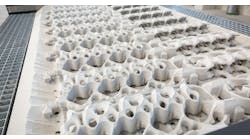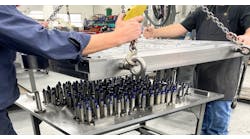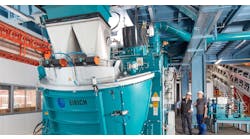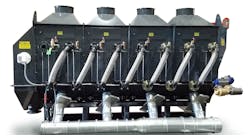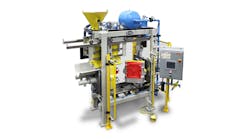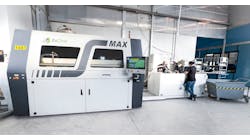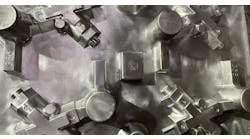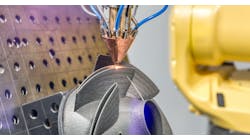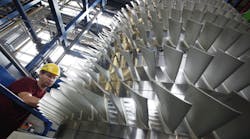Alcoa Inc. has secured a long-term contract to supply investment-cast turbine blades and vanes to Siemens Energy for its F-Class industrial gas turbines. Specific terms of the arrangement were not revealed, but the production will be done at Alcoa Power and Propulsion operations in the U.S. and Europe.
APP is a business unit of Alcoa Inc. that produces airfoil and structural investment castings for aerospace engines and industrial gas turbines. Other capabilities include hot isostatic pressing, high-temperature coating, titanium ingot casting, and specialty investment casting materials. Among its 25 investment casting foundries, specialty machine shops, and other plants worldwide, APP produces IGT investment castings at Dover, NJ, Hampton, VA, and LaPorte, IN. Ceramic cores for investment castings are produced at Morristown, TN.
In Europe, APP produces investment castings for aerospace and industrial gas turbines at Gennevilliers, France.
“Alcoa’s blades and vanes operate in the most demanding section of the turbine, where temperatures sometimes exceed the melting point of the casting and the rotational rate exceeds the speed of sound,” stated Andreas Fischer-Ludwig, director of Global Blades & Vane Business at Siemens Energy. “But, even in that severe environment, Alcoa technology keeps the castings working optimally, which is crucial to our global customers who need to generate electricity dependably.”
Alcoa indicated the parts to be supplied to Siemens would be used in production of its F-Class turbine, among other designs.
Earlier this year Siemens indicated it would escalate industrial gas turbine production, anticipating rising demand from power plants in the U.S. and elsewhere seeking to modernize their systems, and to take advantage of rising availability of natural gas.
Industrial gas turbines typically feature a rotating compressor coupled to a turbine, with a combustion chamber between them. In the combustion chamber, gas fuel is mixed with air and ignited in the pressurized atmosphere, and the products of combustion are forced into the turbine section where the velocity and volume of the gas flow is directed through a nozzle past the turbine blades. As the turbines spins, it powers the compressor, and drives the mechanical action.
Siemens has a series of heavy-duty gas turbines with a range of sizes and ratings for applications that include combined-cycle power generation. The group has targeted power plant modernization and update projects with its IGT products, offering options “to generate substantially more electricity with the same amount of fuel. Such solutions pay off – economically and environmentally,” according to Siemens.
For example, it cited the F-class gas turbines that it said would raise the efficiency of combined cycle plants to over 58%. Calpine Corporation, a U.S. operator of natural gas-fired combined-cycle plants, is upgrading approximately one-third of its generating capacity with Siemens F-class gas turbines.
Alcoa noted it has been supplying products, materials, and services to Siemens for 30 years.
“We are pleased that Siemens Energy recognizes the value Alcoa’s expertise in investment casting brings to building efficient and durable power generation equipment,” stated Alcoa Power and Propulsion vice president Allen Zwierzchowski. “As a global leader in investment castings, we are well-positioned to support demand for industrial gas turbines as power suppliers use greater amounts of low-priced natural gas to produce electricity.”

